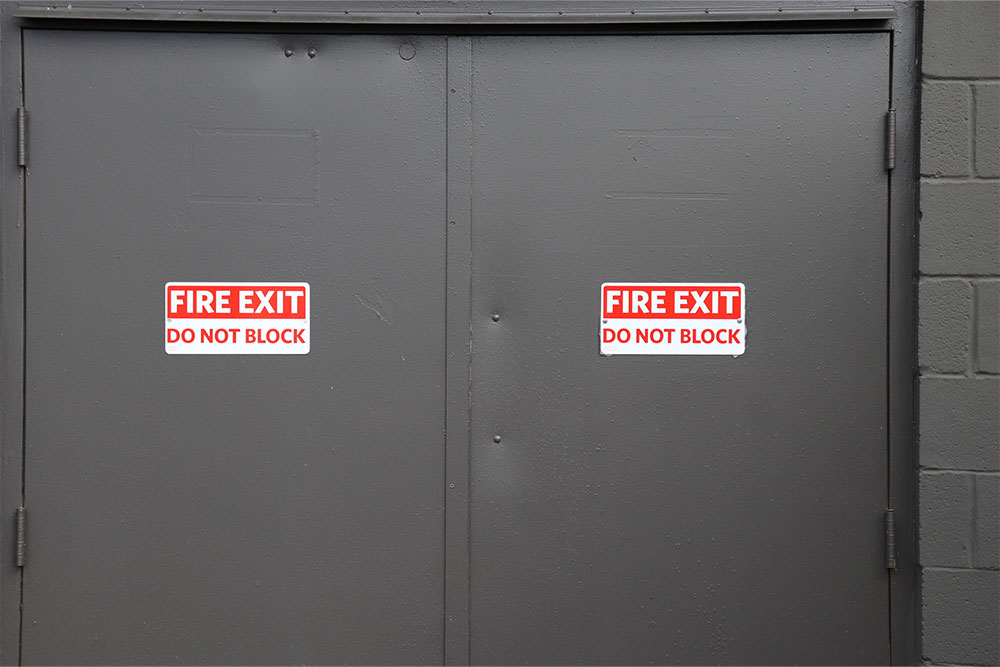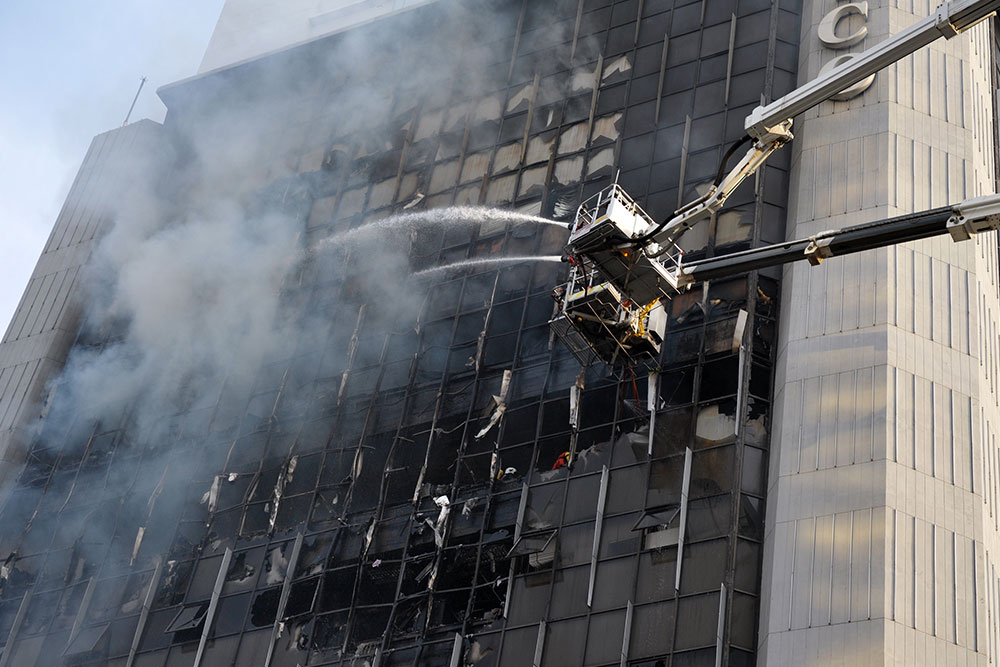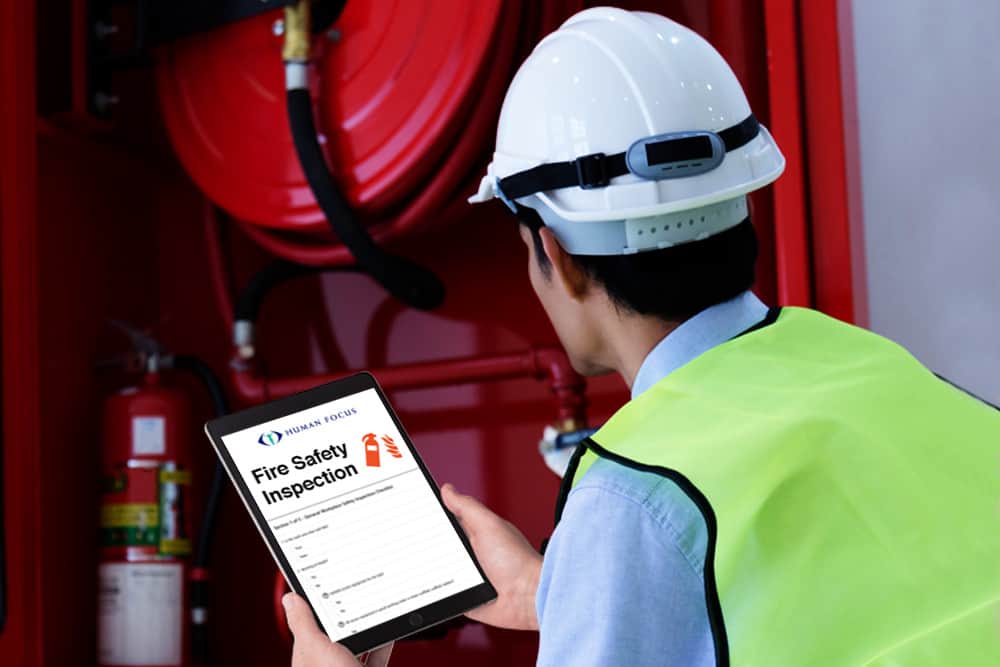
The number of reported fires is decreasing. And it has been for some time.
But this downward trend might not be as much of a reason to celebrate as it initially seems.
As preventative measures improve, the number of fires decreases and fire safety may become less relevant in people’s minds. If fires aren’t happening, why should employers spend time and money to protect against them?
However, this is a fundamental misunderstanding of why fire safety is important.
If you’re an employer or a duty holder, you must keep investing in fire safety for your workplace. Because that’s what it is – an investment. Read our guide to see why putting time, energy and funds into fire safety now will help safeguard your organisation’s future.
The Prevention Paradox
Imagine you’re a computer programmer in 1999. You’re working furiously to ensure your employer’s computer network won’t confuse the year 2000 with 1900. If that happened, the results would be catastrophic across the globe.
You and your colleagues have worked for years to avoid the Y2K bug (as the press calls it). Governments and businesses across the globe have sunk anywhere from $200 to $858 billion to fix this problem.
You finish your work. The millennium comes. There are no malfunctions or meltdowns. You’re a hero. You and the countless programmers, engineers and technicians who worked to prevent the computer-based catastrophe many of us dreaded.
But something unexpected happens. Instead of gratitude, there’s ridicule.
Nothing went wrong, so all that time and money fixing the issue was wasted – or at least that’s the general public’s view.
Although usually thought of in terms of medicine, this prevention paradox can be applied to attitudes toward fire safety.
If your workplace has never experienced a fire, why prioritise fire safety?
Well, there are four key reasons.
1 – The Legal Reasons
As an employer, you have a legal duty to protect your staff from fire risks. And the law is relatively straightforward – if you don’t fulfil your responsibilities under the Fire Safety Order 2005, you face legal repercussions.
The first step is to know the fire safety responsibilities an employer has. If you’re an employer, you must:
- Conduct a fire risk assessment of your premises and review it regularly
- Report the findings of the fire risk assessment to the staff
- Put in place and maintain adequate fire safety measures
- Plan for a fire emergency, including drawing up evacuation plans
- Give the staff sufficient fire safety instruction and training
Minor infractions may incur a formal fire safety notice. These notices are issued by local fire and rescue authorities and explain what you need to do to comply with fire safety regulations.
More serious shortcomings can incur fines of millions of pounds or even imprisonment.
2 – The Financial Reasons
Any financial penalty for non-compliance with fire safety legislation would likely pale compared to the cost of an actual workplace fire emergency. Because a workplace fire isn’t a one-off cost.
The UK government calculated the total economic and social cost of fire to be £12 billion in the year ending March 2020. Around £3 billion was defined as a marginal cost –the costs incurred after a fire.

For a workplace, there will be the initial cost of repairs and equipment replacement. This expense alone could devastate a business, depending on the severity of the fire. But the losses don’t stop there. You’ll also have to consider the costs that come after a fire, including but not limited to:
- Loss of staff morale – Even if staff are unharmed by a fire, the experience can leave them shaken, demotivated or reluctant to return to work
- Production delays – Operations will need to pause while the fire is investigated and, depending on the extent of the damage, repairs made or replacement equipment sourced and installed
- Lost data and documents – Paper or digital fires can be lost in a fire and with them, potentially years’ worth of valuable data or essential records
- Reputational harm – Customers may doubt your values as a company and turn to competitors if a fire happens because of cut corners or safety failures
3 – The Moral Reasons
Arguably, the most essential reason for fire safety is your moral duty to keep your staff safe.
As noted by the Health and Safety Executive (HSE), your employees trust you when they come to work. Everyone should be able to perform their job without fear of becoming ill, seriously injured or worse.
Controlling fire hazards within your workplace is critical to fulfilling this expectation. Staff who feel unsafe in the workplace will not be happy. This lack of satisfaction will likely incur financial costs through reduced productivity. It will also potentially harm your staff’s mental health.
And there’s the obvious – fire kills. If you’re not fully compliant with fire safety legislation, you’re putting your workers at avoidable risk. Not to mention people in surrounding buildings.
4 – Fire Risk is Never Zero
Adequate fire safety is an ongoing concern. However, the lack of a fire emergency may create a false sense of security as time passes. When complacency sets in, safety standards can start to slip.
Your staff might become a little less careful around the workplace. They might leave boxes in front of the fire escape because there’s nowhere else to put them. Or they might ignore your fire alarms because it’s ‘only a pointless drill’.

As the employer, you must stop this from happening. Ensure that fire safety is always a priority and a shared responsibility among your employees. You can never completely eliminate fire risk from your premises.
Remember the computer programmers who stopped the Y2K bug? If disasters aren’t happening, your safety measures are working.
How to Make Fire Safety a Priority
You have to provide your staff with adequate fire awareness training. But this shouldn’t be a tick-box exercise; training is one of the best ways to manage risk and show your team that safety is a priority.
Our online fire awareness training course fulfils your training obligations. It gives your staff the understanding they need to support workplace fire prevention or evacuate safely should a fire emergency happen. The course covers identifying fire hazards, minimising common risks, and recognising fire safety signs. Employees will be engaged, aware and ready to commit to fire safety in your workplace, helping to protect your organisation from the fallout of a workplace fire.





























































































































































































































































































































































































































































































































































































































































































































































